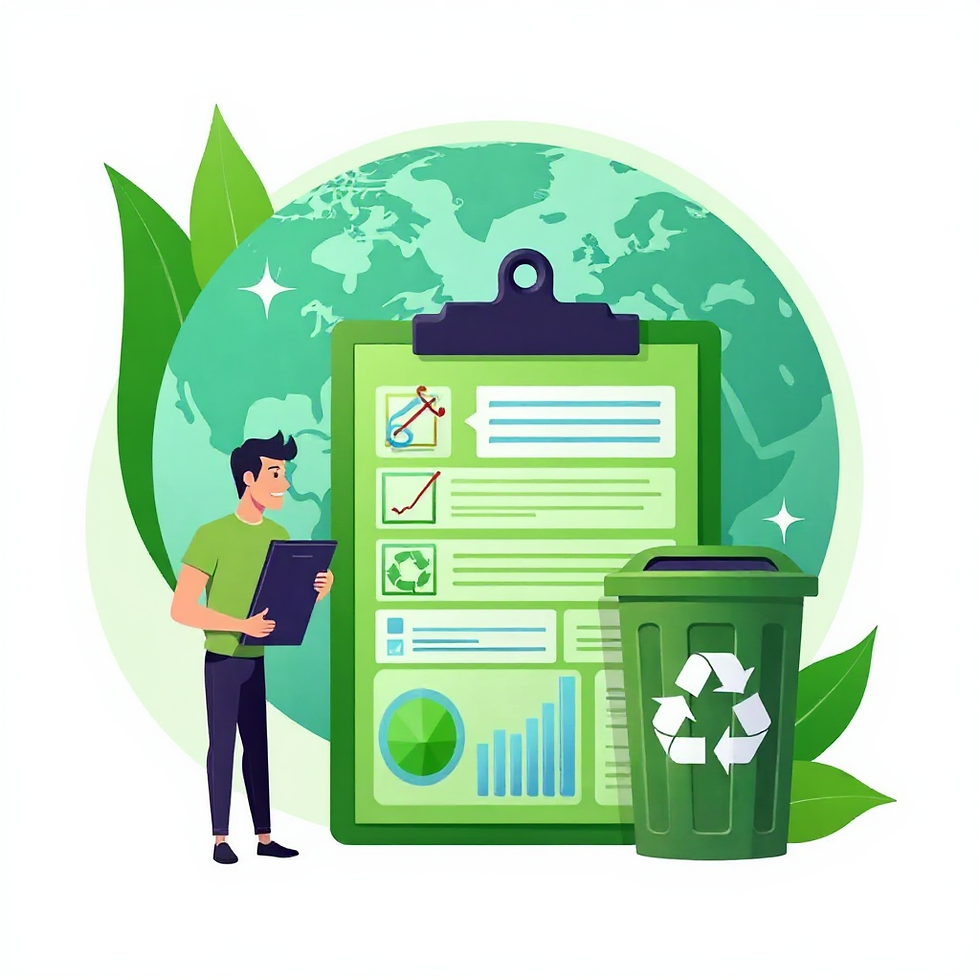My Recycling Tech Platform- The Beginning
- Jaskaran Singh

- Nov 29, 2020
- 3 min read

For someone who has not been in the industry for too long, I sometimes feel like I am fighting a lonely battle.
My foray into waste management started with trying to sell a compactor a couple of years ago. When you try to sell in a different market, you tend to research the target audience, the market you are in, the current structure, future and so on. I felt like Alice in wonderland when I started researching the market here in the Middle East. A dark hole, that never seems to end. Yes, good surprises along the way, but some shocking revelations too. Without being too technical, (As we can leave that for another day), the UAE waste management market is a baby compared to the rest of the world. We are on the precipice of something unique and great, but to get there, we need to make drastic changes.
Let me ask you a question?
How many of you have thought about this: what happens to your waste when it leaves your bin? Where does our waste go? How much waste is being generated or ending up in the landfill? These are some of the questions we think about regularly. The truth is, vast majority of people do not know what happens to our plastic bottles, let alone anything else. I recently, had on my podcast, (surprisingly simply named, Gilbert&Singh) Jeroen Adriaansens, the procurement & Trade Director of Dgrade (Company that recycles PET bottles into reusable clothing), and he mentioned that, in the UAE alone, we have close to four billion bottles being used on a weekly basis, and 93% of those end up in the landfill. That, literally, left me speechless. I might have even cussed on the podcast. We started talking a bit more, and it helped us in realising, that, yes there is significant demand on the waste industry, and the government, but also consequently presents vast opportunities for technological improvements.
Our main concern, or focus, in the market, has always been: Let us get the best machines. Let us get the best recycling facilities. What we sometimes forget, it is good to go back to the start. Go back to the source. In this case, the daily consumers. Let me give you another shocking fact. UAE, especially Dubai, has the highest waste capita per person in the world, which, more than doubles, during Ramadan. That kind of problem, especially, such a large scale, you must go back to the source. One of the best ways of doing this, yes, provide better solutions, but the data. If there is a stream of data which says, you, as a part of a character arch type, are consuming x amount of waste over the year, we, as a country, then can tailor our solutions to that. This, I believe, could be a potentially huge turning point for the UAE, especially, in terms of global image.
What is the role of Data in Recycling? With the current world moving at light speed, data accumulation for recycling information, could have a significant impact on the recycling industry. I was watching the Social Dilemma the other day, (a great series, if my recommendation holds any substance), and it got me thinking. Why not use the power of big data and educate people on their waste!!! Once they learn, we can help them navigate though the hole that Alice, and myself, went through alone. Use the data, to understand, what is that we are wasting. Why are we consuming the way we are consuming, and then, et Voila, you are in the trenches, understanding what the consumer needs. The more you understand that the more you learn. Just like AI (A topic which I will leave for another day)
For now, I leave you with a lot to ponder. I will be writing this on semi regular basis, where I will be talking about recycling, data, AI (A term that people put inside just to get clicks and likes), technology trends that could help combine all of aforementioned variables, tech platforms and how the future of recycling could be a B2B/B2C model, but don’t be alarmed. I, will also, be talking about the books that I’ve read over the week. Shows that have influenced my thoughts. Podcasts that have helped me grow.
Stick by it.
_edited.png)



Comments